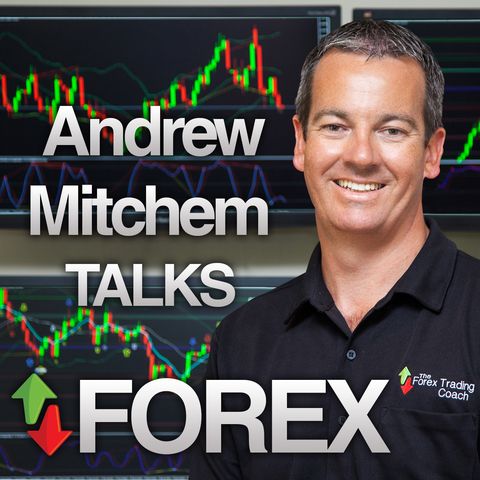How To Start Out as A Forex Trader Podcast: Find out more about Blueberry Markets – Click Here Find out more about my Online Video Forex Course Book a Call with Andrew or one of his team now Click Here to Watch Prop Firm Masterclass Click Here to Check Out Other Recommended Broker #547: How To Start Out as A Forex Trader In this video: 00:22 – Do you want to start trading? 00:44 – Trading Forex – The Basics. 01:30 – Choosing a Forex Broker. 01:56 – Forex Education. 02:23 – Your Trading Plan 02:50 – Start on a Demo Account. 03:12 – Technical or Fundamental Trading. 04:08 – Trading and Travelling. 04:44 – Blueberry Markets. 05:00 – My 1 Hour Masterclass and Book a Call. 05:34 – Comment, Like & Subscribe. How do you start as a forex trader? I'm going to cover that topic and more for you over the next few minutes. So let's get started. Hi everybody! Andrew Mitchem here at the Forex Trading Coach. Do you want to start trading? So you're interested in diving into the world of forex trading. Now whether you're looking to supplement your income or to embark on a new career, starting out as a forex trader can be both very exciting and also challenging. And in this video and podcast, I'm going to walk you through the essential steps that you need to get started on the right foot. Trading Forex – The Basics. Now, first, let's cover the basics. Forex trading or foreign exchange is a global market for trading currencies. It operates 24 hours a day, five days a week, and it's the largest financial market in the world. Now, unlike other markets like stock markets, which are based in specific locations like New York or London, the Forex market happens over the counter, which means that basically transactions are conducted directly between parties, usually through an online platform. And to start trading, you need to have a reliable internet connection. Obviously, a computer, laptop or mobile device and just somewhere that you can sort of focus on trading somewhere quiet, you can focus on trading. Choosing a Forex Broker. Next, you need to choose a forex broker and look for one that's regulated and has high quality rankings as well. Competitive spreads and uses platform such as Metatrader 4 or Metatrader 5. I'll put a link on this page to a list of brokers who I use and suggest that you consider because that's going to massively help shortcut the list for you. Forex Education. Now, education is also key to being a successful trader. You've got to learn the basics. The fundamentals of forex trading. Understand how currency pairs work, such as the majors like the EUR/USD and GBP/USD and then get into more like the minors like the AUD/NZD or EUR/GBP. And you got to familiar eyes yourself with you know what pips are leverage margin. All those type of phrases which right now may not be familiar to you. Your Trading Plan Next you need to develop a trading plan, and a solid trading plan should outline your financial goals, your risk tolerance, specific strategies that you plan to use. You need to decide how much capital you're willing to invest and of course, never risk more than you can afford to lose. So a good rule of thumb that I use is I risk only half of 1% of my trading account on a single trade. Start on a Demo Account. And before trading the real money, of course, you should practice using a demo account. And most brokers offer a demo account to basically simulate real trading conditions. But it's not real money. Now, use this opportunity to test your trading plan and your strategy and get comfortable with the trading platform without having that risk of losing real money. Technical or Fundamental Trading. Understanding market analysis is also crucial. There's two types of analysis. There's technical and fundamental. Technical analysis means looking at charts, using indicators, etc. to predict movements. Whereas fundamental analysis,
show less

